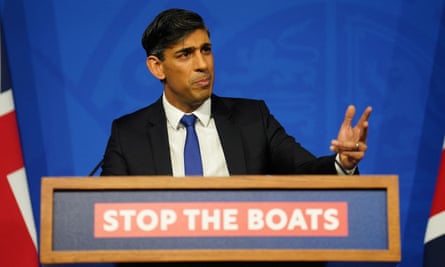Exclusive: Max Hill KC says it is imperative to protect free speech when setting limits on protesting

The former director of public prosecutions for England and Wales has warned against the risk of creating “thought crimes” amid the recent clampdown on protesters and demonisation of demonstrators by politicians.
In an interview with the Guardian, Max Hill KC, who was head of the Crown Prosecution Service (CPS) from 2018 until November last year, said it was imperative to protect free speech when setting limits on protest.
Hill’s time in office coincided with new anti-protest legislation in the shape of the Police, Crime, Sentencing and Courts Act 2022 and the Public Order Act 2023, plus an intervention by the then attorney general Suella Braverman, which removed the right to protest under the European convention on human rights as a defence to criminal damage.
Braverman turned to the court of appeal on a point of law after Conservative MPs were angered over the acquittal by a jury of four people for toppling a statue of the slave trader Edward Colston in Bristol, while politicians’ rhetoric against environmental protesters also ramped up during Hill’s term. More recently, senior Tories have called for the banning of peaceful demonstrations demanding a ceasefire in Gaza.
Asked about protest cases on his watch, Hill said “in a sense we have no option but to prosecute cases” if they meet the tests of evidential sufficiency and public interests. But pressed on his thoughts on developments in the law, now he was out of office, he said: “There are things that people think and things that people say and sometimes things that people do, which are offensive in the eyes of many, which cause reaction, but which we shouldn’t regard as crossing a line into criminal conduct. And in saying that, I’m saying no more than we should remember what free speech means.
“We should remember that we don’t create thought crimes in this country. And that we go into very difficult territory if that is what we do, because it is very complex and difficult to draw up a definition, which captures true criminal conduct, but doesn’t at the same time capture ordinary if offensive conversation, which is part of free speech, political debate, the sorts of things that the people can engage in.”
Hill, who has joined the London office of the US firm King and Spalding as a senior counsel to advise clients facing government investigations, described the area of protest laws as “a very political and sometimes emotional landscape”.
Discussing his time at the CPS, he implied that there had been occasions when law officers – a collective term for the solicitor general and attorney general – had sought information about specific cases, but he declined to reveal whether they related to protest arrests or who had made the interventions (there were eight different solicitor generals and six different attorney generals during his tenure).
“In terms of pre-charge casework, even if I was asked, I never revealed still less succumbed to pressure either on the nature of charges or the timing of those charges,” said Hill. “What I’m saying is that doesn’t mean I was never asked but it does mean that I was very clear that casework decisions and specifically charging decisions were for the CPS and nobody else.”
Among controversial protest cases on Hill’s watch was that of two people who were prosecuted for calling Iain Duncan Smith “Tory scum” outside the Conservative party conference in October 2021. They were acquitted and, after the high court refused to overturn the decision, the CPS, under the new DPP, Stephen Parkinson, is appealing to the supreme court.
Hill, who also served as the UK’s independent reviewer of terrorism legislation before becoming DPP, echoed his concerns on protest laws when asked about his views on Michael Gove’s new definition of extremism, which is aimed at barring neo-Nazi organisations and those with “Islamist orientation and beliefs” from access to public money, ministers and civil servants.
“The new definition of extremism will be divisive, hard to limit only to what the government apparently intends, and it lacks an appeal mechanism,” said Hill. “For all three reasons, this definition is problematic.”
Guess what you like
Leave a comment
Email addresses will not be published. Required fields are marked with *



